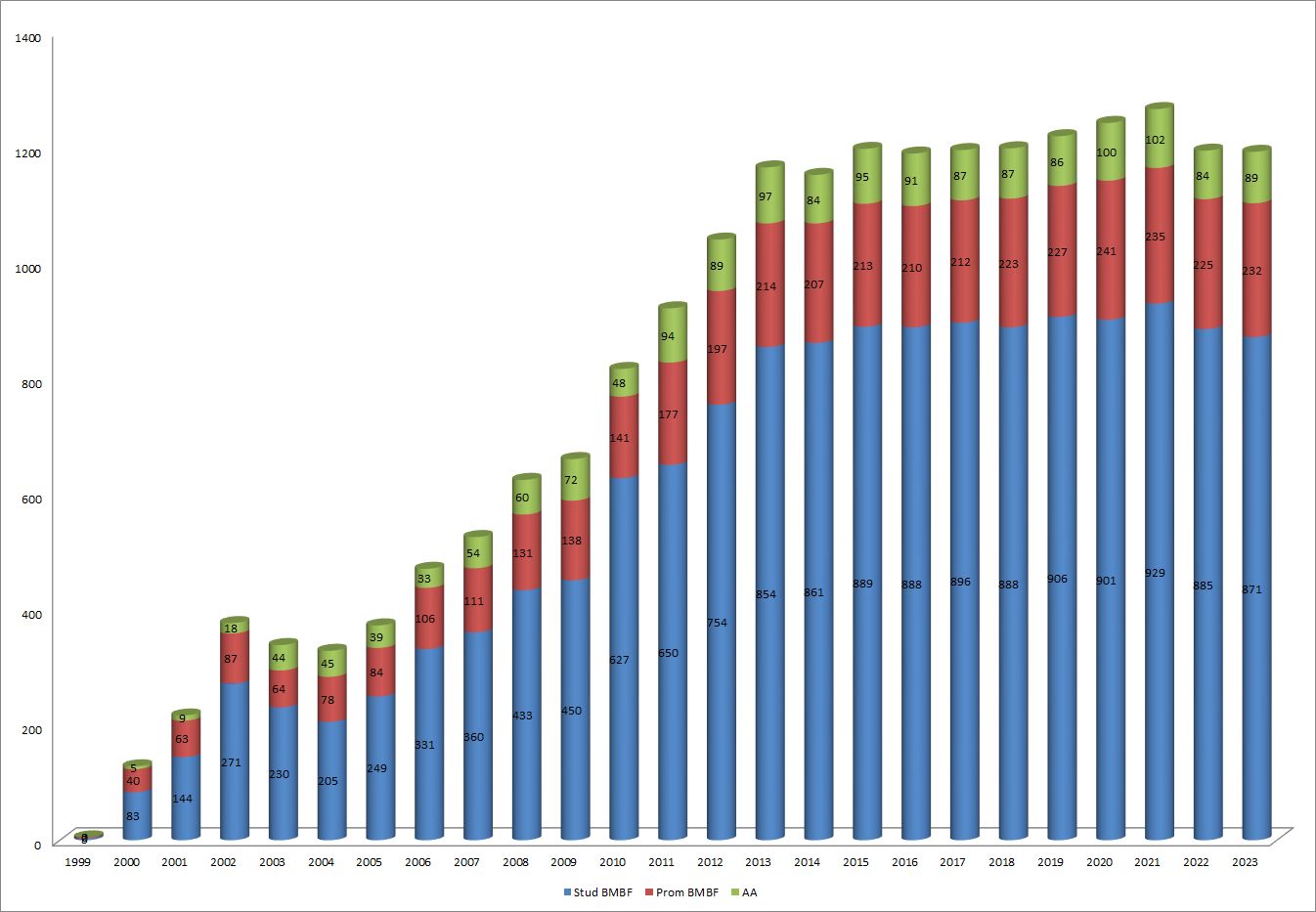Introduction to the scholarship department
Development of the Scholarship Department
The study agency was founded in 1999 and celebrated its 20th anniversary two years ago with a special event. In this video, scholarship holders talk about the advantages and possibilities offered by a scholarship.
As shown in the graph below, the study agency has seen a rapid growth in study scholarships and PhD scholarships in the past twenty years:

The study agency comprises two areas: study scholarships and PhD scholarships. Within these areas, we also distinguish between the support programmes of the German public funding authorities who finance our scholarships and whose guidelines we are obliged to follow: BMBF (Federal Ministry of Education and Research) and the International Scholarship Programme (AA/Federal Foreign Office). The BMBF programme is also home to our PhD candidates and to doctorates researching specific topics. A special programme for North Africa (SPNA) and a special programme for funding persecuted researchers from Turkey (SPWT) also fall under the International Scholarship Programme.
We also run a support programme that offers postdoc students and PhD candidates short-term grants for a 6-month research period in Germany. And finally, we are in the process of establishing a postdoc scholarship programme for young researchers from countries of the Global South, which will be funded by the Federal Ministry of Economic Cooperation and Development and entitled “Programme for Promoting Academic Expertise on Global Issues”. This programme will also offer grants for research and teaching periods of 6 months. The establishment of this programme ties in with our newly-formed International Research Group on Authoritarianism and Counter-Strategies
Principles of good communication
In light of the growing number of scholarship holders in recent years, study agency staff members have their hands full. We kindly ask you to understand that we are not always able to respond to your requests right away – there may be a delay, and some patience on your behalf may be necessary. If you have not received a reply after 14 days, however, please send us a reminder.
To keep the number of emails, voicemail messages, and the like to an absolute minimum, we’d like to ask you to keep to a few rules that have proved useful for communication.
If you require information about your scholarship or similar information, have a look in the self-service portal (SSP) first, or in the section introducing your scholarship on the website. You will find answers to most of your questions here.
Only if something is still unclear to you should you write us an email. Please ensure you are getting in contact with the right staff member for your query: the study agency organization chart will help you with this. In general, we recommend you approach administrative staff for factual questions and speakers for questions relating to the content of your research.
Please do not send more than one email with the same query to different members of staff, as this leads to clutter and unnecessary work duplication. If you feel it necessary to send an email in this way, then please send it to one staff member with the other staff members in cc rather than in bcc or in separate emails.
Phoning is often a quicker way of getting in touch. If you call us without prior notice, it may be difficult to get through, or you may catch us when we’re heading out the door. If you want to talk to us about an issue that requires more time, you can email us to arrange a phone appointment.
We also offer face-to-face consultation, of course. Scholarship holders in Berlin and Brandenburg can contact their speaker or a relevant administrative staff member to arrange an appointment for a consultation on Foundation premises. Scholarship holders located in other areas of Germany can avail of a face-to-face consultation when regular national meetings take place.